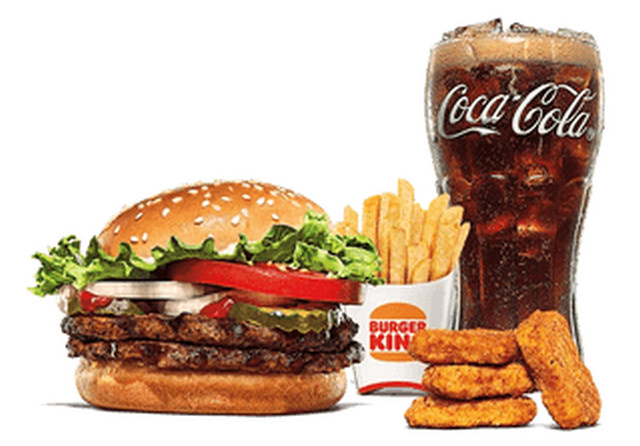McDonald’s is suing the 4 biggest US beef suppliers for artificially hiking prices. The burger giant claims that’s the real reason it – and the competition – have had to jack up menu prices to unre-lenting, record highs…
 The world’s newest endangered species?
The world’s newest endangered species?
Well… This is a new marketing and PR strategy! And a bold one, by McD’s, to shift the spotlight away from itself – and its competitors, as well – on the issue of unprecedented high Fast Food menu prices.
When in doubt…
There’s an old, dark joke about the stereotypical American’s reaction to any kind of adversity: ‘When in doubt – sue!”
Sue somebody, anybody, over anything you can think of. And be sure to claim not only for material damages but ’emotional stress’, too…
What they’re claiming
McD’s lawsuit accuses Cargill, JBS, National Beef Packing Company and Tyson Foods have been working together to restrict supply and charging artificially high prices. And that, the chain main-tains, is why the price of its flagship Big Mac has had to rise by an average of 21 percent since 2019.
The lawsuit says the meat packers have actually been conspiring to raise prices since 2015. McD’s alleges the suppliers got together and agreed to reduce their output to create artificial shortages, pushing prices up.
Suppliers standing firm
But the suppliers are standing firm in the face of this onslaught. In fact, they’re denied previous similar claims by major retailers including Aldi and Target, as well as a number of grocery whole-salers who supply other retail outlets. The truth is, they really don’t have a choice.
An industry-wide disaster
If McDonald’s wins the lawsuit, or the packers admit wrongdoing, they would have to settle with virtually all the parties who’ve been affected. And that could result in the largest such payout by far, in fines and compensation, ever awarded in the US.
The packers would be ruined, financially. But so would the meat producers who sell their livestock to the packers. And the folks who sell the producers feed and other supplies would, in turn, be hammered.
The fact is, the whole animal protein supply chain would be broken – perhaps irreparably. Remember, the same folks who process beef also handle the poultry, pork and other mass-marketed meats sold across the country.
Tooth and nail
So… Both sides in the suit can be expected to fight ‘tooth and nail’. For their very survival. Because if either side wins in court, there will be no real winner in the real world.
If the meat packing industry is damaged, so is the country’s entire animal protein production infra-structure. There will be real, significant shortages And then what do the Fast Food chains do for featured menu items? What would it cost to import meat from other countries?
It could mean a boom for Canadian producers. And probably Agentina and other major meat export-ers. If the price was right.
On the other hand…
If imports were too expensive or unreliable, it could mean the end for conventional ‘mains’, both in the restos and on home tables.
One practical outcome of the whole mess could be the greatly accelerated move to plant-based pro-teins. And nobody is ready for that eventuality. Because that’s not a reality the industries involved or consumers have been expecting to face for another decade or so.
My take
I have a number of questions…
Is there even enough money in the US economy to satisfy the kind of settlement that could result from the resolution of this huge lawsuit?
If not, what sort of non-cash settlement terms might work?
Would the meat packers have to liquidate large parts of their empires to pay their fines? But then, the country’s protein production capacity would be seriously compromised. And America would be back to shortages – real ones, this time – that would drive prices even higher.
I have an uneasy feeling that the plaintiffs in the case could end up taking ownership stakes in the meat packers’ companies in compensation. That would preserve the infrastructure but play finan-cially into the hands of the Fast Food chains and other downstream protein supply chain players.
And if the meat supply fall into than hands of its biggest customers – what would that mean for consumers?
At this point… Nobody has any idea how this whole monstrous mess might end up…
~ Maggie J.

